Hope seems to be a familiar concept to almost anyone. A standard ‘orthodox’ definition from philosophy defines it as a “compound state that combines a desire that p with a belief, or at least a presupposition, that p is possible but not certain” (Huber 2023, 82). Yet while the topic has been addressed within ancient and 20th-century philosophy and there is a whole discipline devoted to the human capacity of hope in psychology (hope studies) it is rarely considered in literary and cultural studies. Shortly after the 2008 financial crisis, the term was incorporated in the portmanteau word ‘hopium’ (i.e. hope and opium), as slang among financial traders to describe the tendency to hold on to a stock even as it continued to fall. By the 2020s, ‘hopium’ has come to refer to “all kinds of delusional hopes” (Taylor 2024). How is it possible that ‘hope’ was both the slogan of Barack Obama’s presidential campaign in 2008 and is, in other contexts, used synonymously with ‘delusion’ or ‘naïveté’? Why do most humanities disciplines evade the topic altogether?
Using these and related questions as a starting point, this MA seminar puts a critical investigation of the concept ‘hope’ at its heart. In particular, we want to think about the potential of narrative and storytelling and their connection to expressions of hope. Storytelling and hoping are intrinsically related. Both are practices, modes and attitudes that characterize humans; for now, at least, AIs and machines cannot hope. Both enable those narrating or hoping to take a stance towards the Here and Now, imagine worlds and create perspectives for the future. After familiarizing ourselves with a few historical positions on the concept, notably represented by Aristotle and Ernst Bloch (associated with the Frankfurt School), we will turn to 21st-century engagements with hope, coming especially from feminist philosophy and queer studies, such as Rosi Braidotti and José Esteban Munoz. These positions will form the backdrop for our engagements with four contemporary novels by Scottish (Ali Smith’s Autumn), English (Matt Haig’s The Midnight Library), Polish-English (Tomasz Jedrowski, Swimming in the Dark) and Irish (Sally Rooney’s Beautiful World, Where Are You?) writers and one play (Tom Stoppard’s Arcadia). During the course of the semester, we want to develop an understanding for what hope is in contemporary fiction, how it has been rendered narratively, what its connection is to ethics and what other concepts (despair, loss, temporality) it stands in tension with.
- Trainer/in: Heidi Liedke
